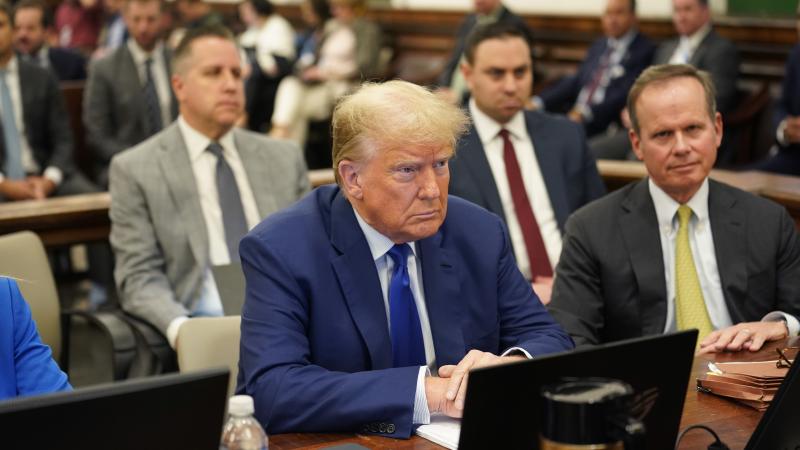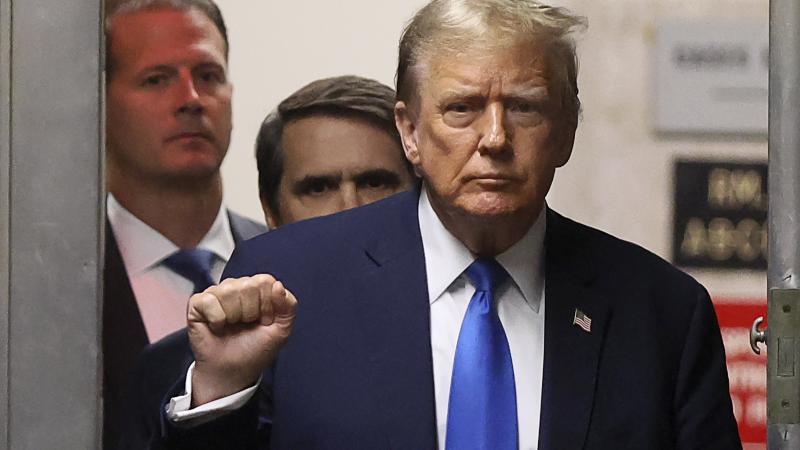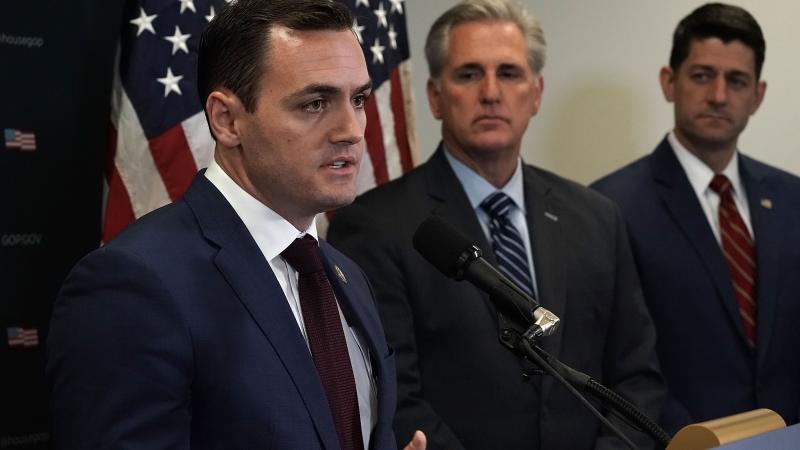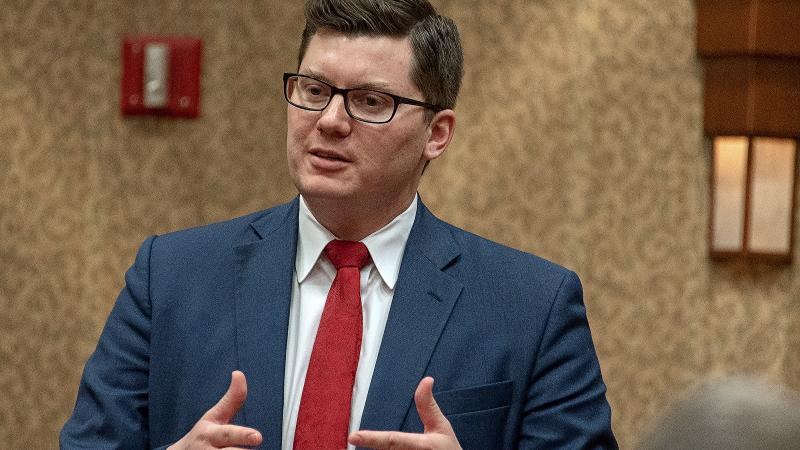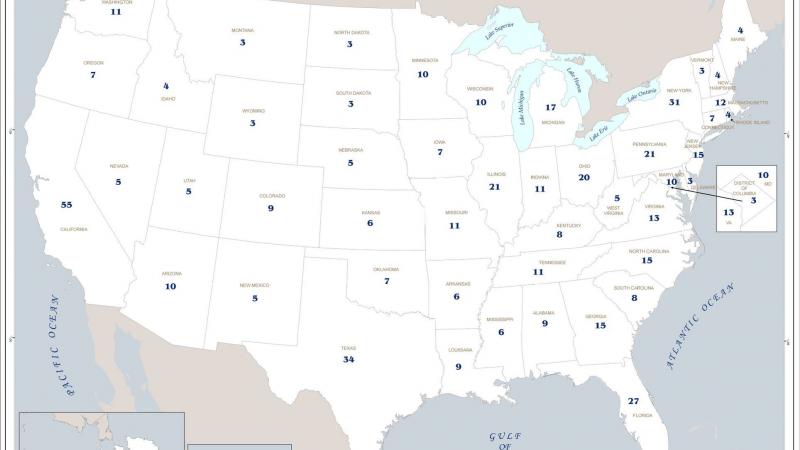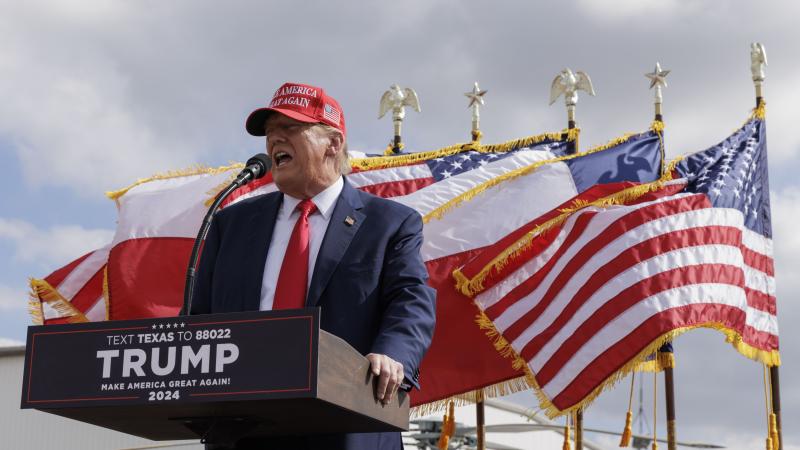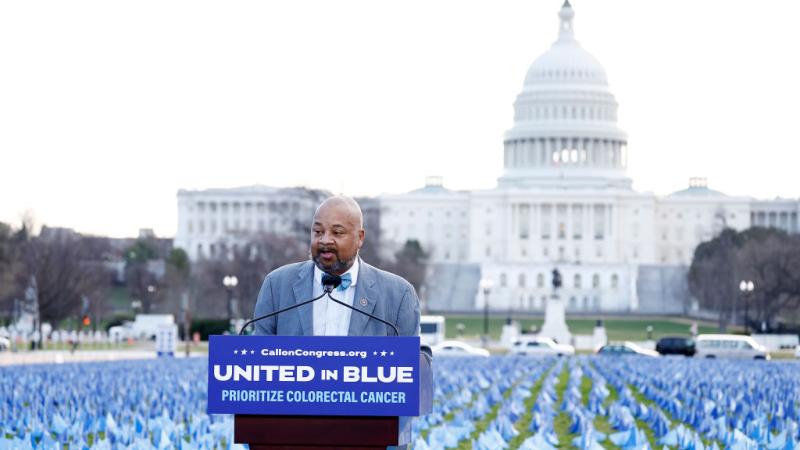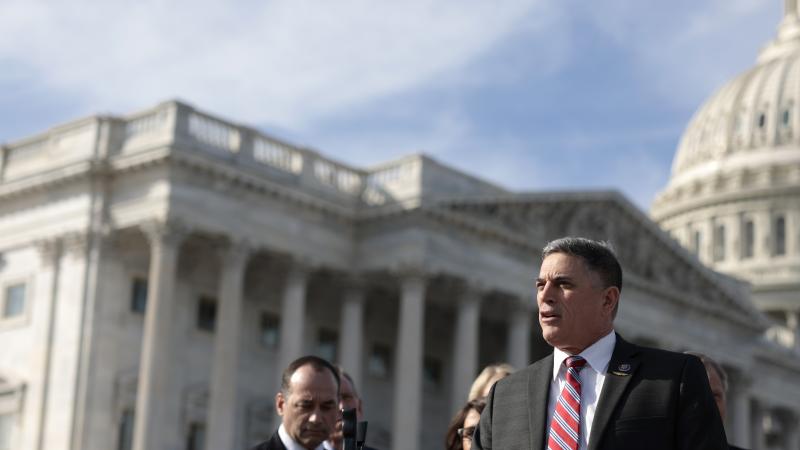Court memos detail unethical, unpunished leaks in case handled by potential Biden AG Preet Bharara
Preet Bharara knew about FBI leaks two years before his office denied them. No one has been punished.
Preet Bharara is often mentioned as a possible U.S. attorney general in a Joe Biden administration after building a reputation as a hard-charging federal prosecutor and self-proclaimed ethicist teaching law school and dispensing morality on Twitter.
But one of the last cases he handled as the chief federal prosecutor in New York City cuts against the grain of his carefully manicured image, exposing widespread leaking by the FBI — and knowledge of it by the Manhattan U.S. attorney's office — during the insider trading case of businessman and former Las Vegas sports gambler Billy Walters.
The government's misconduct initially was hidden from the judge, and to this day remains unpunished despite the court's demands for accountability, according to legal filings reviewed by Just the News.
Bharara personally had to admit the government's wrongdoing, filing under his name a lengthy report of misconduct with U.S. District Judge Kevin Castel in January 2017, shortly before President Trump fired Bharara as U.S. attorney for the Southern District of New York.
After months of telling the court in 2016 that Walters' requests for evidence of grand jury leaks was "a fishing expedition," Bharara's office had to admit that a senior FBI agent in the case, David Chaves, and others in the FBI and U.S. attorney's office had contacts with the news media and one or more may have committed a crime by leaking grand jury evidence.
"It is now an incontrovertible fact that FBI leaks occurred, and that such leaks resulted in confidential law enforcement information about the Investigation being given to reporters," Bhahara's prosecutors wrote in a Jan. 4 2017 ex parte memo to the court.
While prosecutors did not admit directly to a violation of the Rule 6(e) prohibition on leaking grand jury information, they wrote "we believe that the appropriate course is for the Court to assume that a Rule 6(e) violation occurred and proceed to consider the issue of remedy."
It is extremely rare for prosecutors to acknowledge grand jury violations. Nonetheless, Walters was convicted and sent to prison, from which he was recently released to home confinement due to medical concerns related to the pandemic.
Today, the case stands as the latest glaring example of the failure of the FBI and DOJ to punish its own wrongdoing, which some judges who reviewed the case suggested was worse than Walters' crime.
Chaves was never charged with any wrongdoing and was allowed to retire from the FBI without penalty. He declined comment through his lawyer. Peter Carr, a DOJ spokesman, declined to say whether the leaks are still being investigated. Bharara declined to comment.
In the court filing and in statements he has made since he left office, Bharara has repudiated the alleged conduct of Chaves and insisted he and his office weren't involved.
"The available information uniformly indicates that the USAO was not a source of confidential information provided to reporters about the Investigation. Members of the USAO, at all levels, were distressed by the leaks," Bharara's memo to the court said.
In a 2017 speech after he left office, Bharara added, "It came to the court's attention and our attention that a particular FBI Agent did what he should not have done, and that came to light because we brought it to the attention of the court."
"The FBI Agent is potentially subject to criminal prosecution" and "will suffer consequences as he should and he absolutely should," Bharara told the audience in Nevada.
But internal emails gathered during the investigation show Bharara and others in his office were directly aware of the leaks as early as 2014, two years before the prosecutors portrayed to the judge that the defense request for leak evidence was an unwarranted fishing expedition.
"Hey George, I know you agree these leaks are outrageous and harmful," Bharara wrote in a June 1, 2014 email to the head of the FBI office in New York City, George C. Venizelos, after the U.S. attorney was alerted to a Wall Street Journal article mentioning wiretaps. "Let me know what action you want to take together. Hope your weekend was good."
Bharara would later be alerted by one of his top prosecutors that New York Times reporter Ben Protess, who was involved in one of the leaked stories, directly identified the FBI as his source and accused the bureau of providing inaccurate information.
"Just had a good but astonishing conversation with him," Assistant U.S. Attorney Richard Zabel wrote Bharara and other colleagues on June 12, 2014. "Among other things, he was quite upset to have to walk back his story and blames an FBI person (and it sounds like an agent) whom he says they have confirmed lied to the NYT and some other news orgs."
In his 2019 book, "Doing Justice: A Prosecutor's Thoughts on Crime, Punishment and Rule of Law," Bharara wrote about the "fair-mindedness" of executing the rule of law when conducting prosecutions and highlighted several insider trading cases. He did not mention Walters' case, or that Chaves was referred to the Department of Justice's inspector general and the Office of Public Integrity.
Bharara's office indicted Walters for insider trading in May 2016. Several months later, Walters' defense team raised the issue of grand jury leaks before Judge Kevin Castel.
Initially, the government denied the leaks, and accused Walters' defense team of engaging in "a fishing expedition."
Walters' attorneys argued the government made false statements for their wiretap applications, and one or more members of the prosecution team had leaked grand jury information that resulted in articles published by the Wall Street Journal and New York Times from May 30, 2014 to June 23, 2014.
Castel ordered a preliminary evidentiary hearing.
On the eve of the hearing, Bharara's office submitted an ex parte sealed letter to the court with their findings and supporting evidence.
The government admitted that there were multiple meetings and communications between the FBI and prosecutors and the New York Times' and Wall Street Journal's reporters during the time in question.
Chaves "admitted that in 2013 and 2014, he was a significant source of confidential information regarding the Investigation for the Times and Journal," Bharara's memo noted.
"Chaves admitted to providing confidential information to reporters without the knowledge or consent of the USAO," wrote the prosecutors. "Chaves furthermore admitted that prior to December 6, 2016, he had never informed his superiors at the FBI, or anyone else at the FBI, about his private communications with reporters regarding the Investigation."
The USAO interviewed seven of their prosecutors and media representatives, including Bharara, and his deputy, Zabel. They also interviewed seven FBI employees, including Chaves, his bosses, and Matthew Thoresen, the case agent primarily responsible for the Walters investigation.
"We have found no evidence indicating that anyone from the USAO participated in the leaks," Bharara's memo to the judge concluded.
But the government's internal emails suggest that the New York FBI office and USAO, including Bharara, knew of leaks to the press and that the leaker was an FBI agent as far back as 2014, well before the preliminary evidentiary hearing.
On May 24, 2014, for instance, Agent Thoresen sent an email to Chaves and other parties about a Wall Street Journal article: "Whomever is leaking apparently has a special and aggressive agenda in that they are now going to other media outlets in an effort to derail this investigation."
On May 30, 2014, when the Wall Street Journal published a story about Walters and inside trading, Venizelos, then the assistant director in charge of the FBI's New York Field Office, wrote to his colleagues: "Just stop talking with this reporter for now. If we don't have enough evidence by now it's over. I mean it when I say cease contact with this reporter now. If I find out someone is still talking to this reporter after today then there will be reassignments immediately."
Venizelos wrote in another email, "This is not good," and ordered his subordinates, including Chaves, to attend a meeting.
The Wall Street Journal then published another story, and Thoresen reacted, "Deplorable and reprehensible."
Venizelos wrote: "This new article takes a 'not good' situation to a 'bad' one. This is now an embarrassment to this office."
With all of this information revealed to the court, Walters' attorneys moved to dismiss his indictment.
In early March 2017 Castel denied that motion, but acknowledged Chaves' complicity.
"David Chaves, a Supervisory Special Agent of the Federal Bureau of Investigation ('FBI'), acting without authorization, leaked sensitive information regarding a criminal insider trading investigation to reporters at the Wall Street Journal and New York Times," the judge wrote. "The reporters revealed details of the investigation in several newspaper articles."
As a result, Walters' trial went forward on March 15, 2017, lasted three weeks, and the jury returned a verdict of guilty on April 7, 2017 for wire and securities fraud and insider trading information on multiple public companies.
On April 19, 2017, the Wall Street Journal editorial board ran a searing editorial claiming that Bharara's office had been hiding behind "prosecutorial immunity."
"There's also emerging evidence that something was rotten in Mr. Bharara's operation," wrote the WSJ. "The FBI special agent who supervised securities fraud investigations in New York, David Chaves ... was recently cited for leaking confidential grand jury information in the insider-trading case of sports gambler William 'Billy' Walters. Judge Kevin Castel issued an unusual order instructing the FBI to provide updates on Mr. Chaves's internal disciplinary process.
"According to emails revealed in the Walters case, Mr. Bharara knew about the leaks pouring out of the FBI's white-collar unit, including to reporters at the Journal. He called it 'outrageous and harmful' in a 2014 email, but as far as we know he did not nothing to stanch the leaking."
On May 5, 2017, Walters filed a motion for a new trial, which the district court ultimately denied.
Walters was sentenced to 60 months imprisonment, fined $10 million, and a forfeiture to be determined in the future. Two months later, Walters was ordered to forfeit over $25 million and pay over $8 million in restitution.
On appeal to the Second Circuit Court of Appeals, the court found that Walters was not prejudiced by the grand jury violations, although the court noted the possibility of leaking well beyond Walters' case.
In regard to the FBI leaking information to the press, the Dec. 4, 2018 court opinion found, "the leaking of confidential grand jury information to members of the press, whether to satisfy public interest in high profile criminal prosecutions or to generate evidentiary leads, is serious misconduct and, indeed, likely criminal."
The judges all agreed that Chaves' alleged multiyear leaking was "deeply troubling" and a full evidentiary hearing could have found "a fuller understanding of any other insider cases where leaks occurred, or if anyone else in the FBI or U.S. attorney's office was complicit beyond Chaves."
In a concurring opinion, Judge Dennis Jacobs wrote scathingly of the FBI: "The leak of grand jury testimony is in some respects more egregious than anything Walters did ... The FBI depends on the confidence of the public, jurors, and judges. The confidence is critical to its mission; so this kind of thing is very bad for business."
Since Bharara's office admitted that they cannot rebut the grand jury leaks, there has been no prosecution of Chaves, although Judge Castel ordered ongoing updates on the DOJ referral.
The last time Judge Castel was briefed on the Department of Justice's referral was September 2019, according to his docket.
Chaves has since retired from the FBI and is on the speakers' circuit as an expert on the rule of law and wiretaps.
Bharara, meanwhile, teaches ethics at New York University Law School and is a prolific poster on Twitter, where he has abandoned the political neutrality of the Justice Department to espouse his liberal beliefs and disdain for President Trump.
"Trump is laying the groundwork to reject the outcome of the election," he tweeted last month. "And we need to be prepared.
In his book "Doing Justice," Bharara wrote a passage on the imperfections of the judicial system that resonates with some now seeking to get Billy Walters pardoned.
"False allegations, wrongful convictions, excessive punishments, miscarriage of justice are often wholly the result of human failing, not flaws in the impersonal machinery of justice," Bharara wrote.
The Walters case file exposes some human failings, which have yet to be punished.
The Facts Inside Our Reporter's Notebook
Links
- possible U.S. attorney general in a Joe Biden administration
- Doing Justice: A Prosecutorâs Thoughts on Crime, Punishment and Rule of Law
- indicted
- May 2016
- raised
- Wall Street Journal
- published
- denied
- searing editorial
- court opinion
- speakersâ circuit
- https://twitter.com/
PreetBharara/status/ 1290980881478250496


